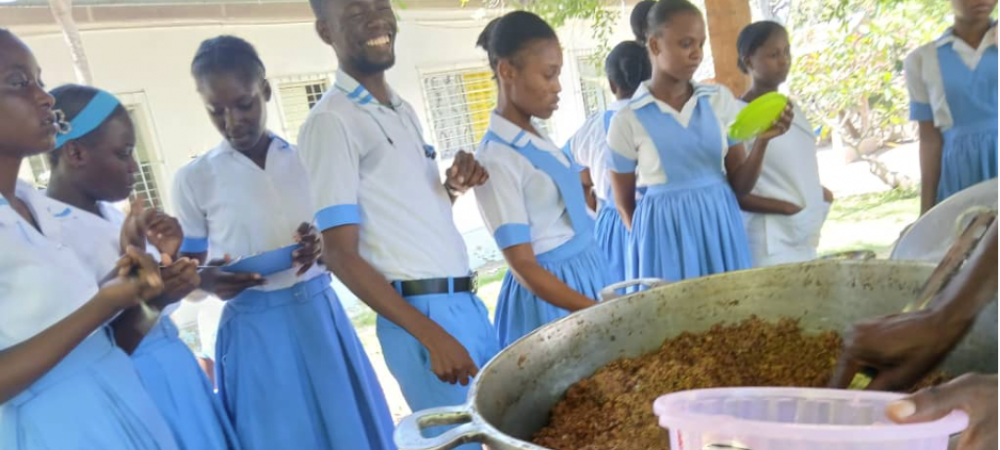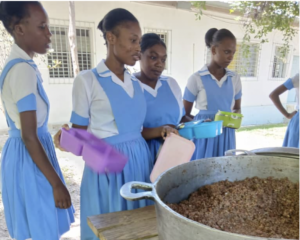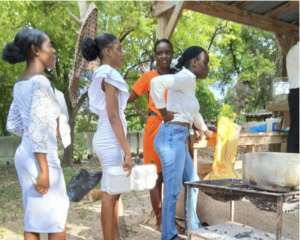
Feeding Hope on La Gonâve
On the island of La Gonâve, just off the coast of mainland Haiti, hunger has become a quiet but relentless emergency. Food prices continue to rise, driven by inflation, supply challenges, and the ongoing instability on the mainland. Families across the island are struggling to make ends meet—and many who have recently fled to La Gonâve to escape violence arrive with little but the clothes they’re wearing.
 Among those affected are the students at the Wesleyan University of Haiti School of Nursing. These young men and women have come to the school, full of hope and calling, determined to become nurses who serve the needs of their nation. But even as they train for a life of service, many are facing hunger themselves.
Among those affected are the students at the Wesleyan University of Haiti School of Nursing. These young men and women have come to the school, full of hope and calling, determined to become nurses who serve the needs of their nation. But even as they train for a life of service, many are facing hunger themselves.
For years, the nursing school was able to provide a simple lunch each day—a basic but essential provision for students juggling long days of lectures and clinicals. That daily meal made it possible for students to focus, learn, and grow. But with rising costs and limited resources, the school had to stop providing lunch, and students have felt the impact sharply.
Pastor Moïse Cenatus, who serves as both the district superintendent of the Wesleyan Church on La Gonâve and the administrator of the nursing school, is watching the crisis unfold from both perspectives. He recently shared that more than 752 families connected to the Wesleyan churches on the island are experiencing serious food shortages. “The district of La Gonâve is one of the regions most affected by food insecurity,” he wrote. “Intervention at any level will help us make a difference in their lives.”
Thanks to the generosity of supporters, a recent gift of $10,000 is now being used to provide food for families in need. That effort is being led by the Wesleyan Church on La Gonâve, which has a careful plan in place to buy local food, ensure equitable distribution through the churches, and provide spiritual encouragement along with physical nourishment.
At the same time, $3,000 has been sent to the School of Nursing to reinstate daily lunches for students—at least for a month. It’s a welcome relief and a sign of hope for those preparing to become healthcare leaders in one of the most vulnerable regions of the world.
These two needs—families struggling to survive and students striving to serve—are deeply intertwined. The nursing students are the future caregivers for their communities. The communities, in turn, are the support systems and spiritual homes for the students. Together, they are the body of Christ on La Gonâve, holding one another up in a time of hardship.
It’s a picture of resilience, community, and the quiet strength of hope shared in a time of need.
